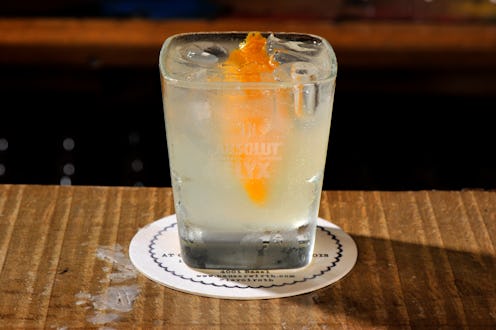Life
Is This The Next Step To Defeating Alcohol Abuse?
Alcohol use disorders affect more than 16 million adults in the United States alone, but researchers just got one step closer to ending them. Using an animal model, a team of scientists at the Texas A&M College of Medicine recently determined the location of the neurons responsible for alcohol consumption — information which they believe could be used to aid in the search for a cure to alcoholism.
The neurons in question, known as medium spiny neurons, are primarily found in the area of the brain known as the area of the brain known as the striatum, which is involved in both motor movement and cognition. This is where it gets a bit technical, so here's a quick refresher for those who don't keep up with neuroscience: Spines shoot off of neurons much like tree branches, and these protrusions contain receptors for neurotransmitters like dopamine and serotonin. A fairly large body of research indicates that dopamine is at least partly responsible for addiction. There are two kinds of dopamine receptors: D1, aka the "go" pathway of the brain, and D2, which tell the brain to hold off when activated.
With this in mind, researchers looked at the D1 pathway in response to the periodic consumption alcohol. One group was given large quantities of alcohol at regular intervals, while the other received a placebo. In the end, the study showed that alcohol makes D1 receptors more excitable over time, making you more likely to head back for that third drink. This creates a cycle in which your pathway is more easily activated, which makes you more likely to keep drinking, which makes your pathway more easily activated.
Furthermore, the study indicated that alcohol physically changed the shape of neurons by making their spines longer and increasing the number of "mature" spines that store long-term memories. Although it didn't change the number of spines overall, the placebo group had fewer mature spines than their soused counterparts.
Most notably, the study also found that animals who were given partial D1 blockers showed a reduced desire to drink alcohol, but this effect didn't hold when they were given D2 blockers. This led researchers to conclude that D1 is the dopamine pathway most related to addiction.
"Even though they're small, D1 receptors are essential for alcohol consumption," lead author Jun Wang, M.D., Ph.D., told Science Daily.
Wang added that the study could be used to develop a drug that blocks cravings for alcohol by blocking the D1 pathway. "My ultimate goal is to understand how the addicted brain works," Wang said, "and once we do, one day, we'll be able to suppress the craving... and ultimately, stop the cycle of alcoholism."
Although it's rare to find an absolute "cure" for any addiction, especially considering the social and mental factors that go into it, this news could help researchers better understand a disease that's affected humans for centuries. Besides, you can totally party without alcohol. Just look at these cats.
If that doesn't look like fun, I don't know what does.
Images: Giphy
This article was originally published on
